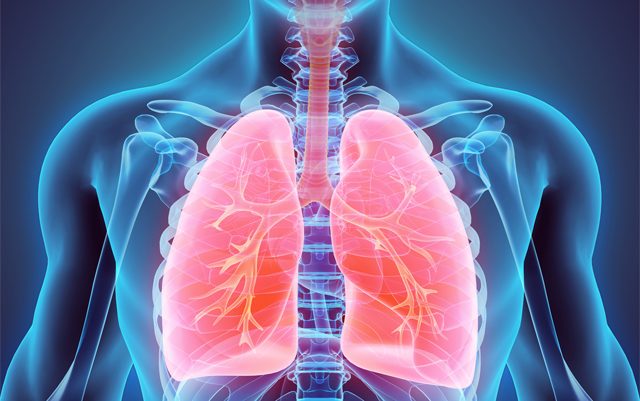What are the effects that cannabis use has on the lungs? Do any of the claims prohibitionists throw out about cannabis and lung health hold water? As we have stated many times before, this is yet another area that is held back by the current classification of cannabis as a Schedule 1 drug. While inhaling smoke of any kind into your lungs certainly carries with it potential risks, these risks can be lessened or perhaps reduced entirely by vaping. Ingesting edibles is, of course, your safest bet when it comes to ingesting cannabis and maintaining healthy lungs.
The section of the American Lung Association’s website where they discuss the effects that marijuana has on the lungs wastes no time trotting out oft-debunked prohibitionist rhetoric that cannabis smoke contains the same toxins, irritants and carcinogens as tobacco smoke and is sure to mention that weed smokers tend to inhale more deeply and hold their breath longer than cigarette smokers, which leads to a greater exposure per breath to tar. More much-needed studies might indeed find that cannabis smoke contains irritants and can cause tar in the lungs. However, the antiquated notion that holding weed smoke in your lungs longer gets you higher is dismissed these days by most cannabis users that know better. Of course, the section of the website comes with the obvious caveat that additional research on the health effects of marijuana smoke and its impact on the lungs is needed.
In contrast to the prohibitionist mindset, advocates of cannabis medicine have argued that smoking weed potentially has more benefits than it does risks. In her book The Benefits of Marijuana, author Joan Bello argued over twenty years ago that marijuana has the potential to deliver richer, more oxygenated blood and perhaps even be a bronchodilator.
In the book, Bello cites a Costa Rican study that found that chronic marijuana smokers who also smoked cigarettes were less likely to develop cancer than cigarette smokers who didn’t use cannabis. Bello goes on to say that since marijuana dilates the alveoli, toxins are more easily eliminated with cannabis use regardless of its method of application. Nicotine, she says, constricts the alveoli, so it is likely that the use of cannabis neutralizes, or even overwhelms, the constriction by its own tendency to dilation.
While The Benefits of Marijuana book has contained important information for over twenty years, Bello’s work alternates from the technical discussion of cannabinoids and citing scientific papers to quoting historical works about cannabis while giving equal credit to both. Despite the book’s interesting content, Bello is not a scientific researcher or a medical doctor. Thus, the book could have greatly benefited from the use of a more hard science-minded editor with the ability to comb through the book and highlight what we can prove as objective fact and make a clear designation about what are relatively unsubstantiated historical claims.






